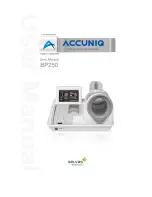
30
8. GLOSSARY
8. GLOSSARY
Color Temperature
Color temperature is a method to measure the white color tone, generally indicated
in degrees Kelvin. At high temperatures the white tone appears somewhat blue,
while at lower temperatures it appears somewhat red. Computer monitors generally
give best performance at high temperature settings.
5,000K: Often used in printing industry.
6,500K: Good for video-image display.
9,300K: Default setting for your EIZO monitor.
Convergence
Convergence is the monitor’s ability to precisely illuminate specific phosphors and
line them up properly in order to produce pure color.
Cutoff and Gain
All colors displayed on the screen are produced by the combination of the light’s
three primary colors, red, green, and blue. For example, white will be displayed
when the amount of luminescence of red, green and blue is at the almost same
rate. Theoretically, black will be displayed when red, green and blue don’t emit
light at all. However, actually, on the screen the amount of luminescence of
each color is not zero and each color emits light slightly. The luminosity of each
color at this time is called cutoff (Black level), and the luminosity of each color
on the basis of the cutoff is called gain.
Degaussing
“Degaussing” refers to the process of removing magnetic-field effects from the
monitor. Operation of the monitor within a magnetic field may adversely effect
color purity. Degaussing can be used to correct the problem.
Moiré
Moiré refers to an interference pattern of dark wavy lines on the screen. It is
not a defect, but rather an interference phenomenon caused by the relationship
between the phosphor layout and the imaging signal. Moiré is often an
indication of a good focus level. Moiré is particularly noticeable when using a
light-gray or every-other-dot pattern background. Although moiré can not be
eliminated, it can be reduced with the moiré reduction feature.
Summary of Contents for FlexScan T965
Page 1: ...ENGLISH ...






































